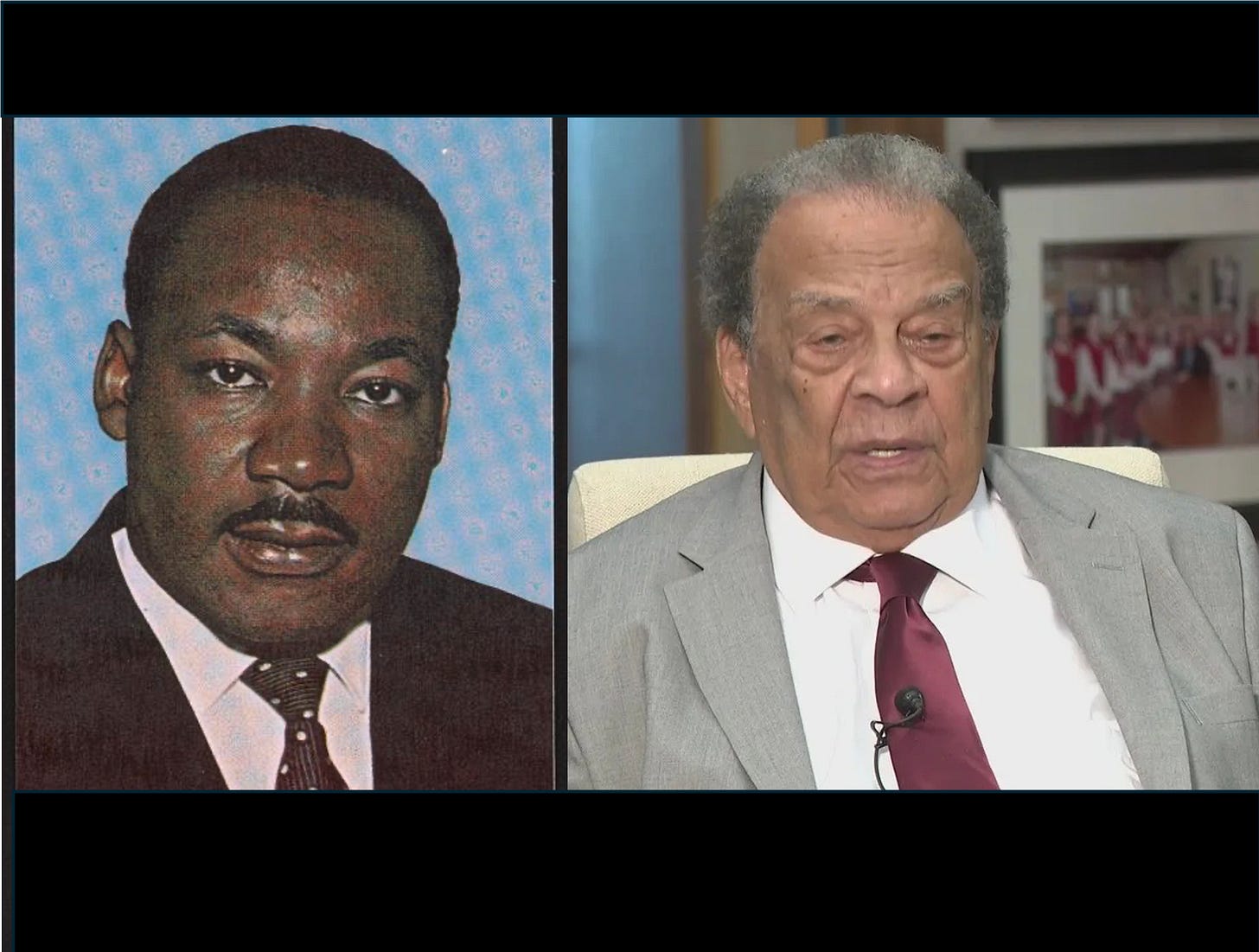Happy MLK Day!
This is the day when everyone feels free to share an out-of-context quote about “not by the color of their skin but by the content of their character”. Well, everybody but Charlie Kirk.
I’m grateful to Scot McKnight for sharing MLK’s entire “I Have a Dream” speech from August of 1963 this morning. I commented on his post that the speech reads like the Old Testament Prophets: Here’s an injustice, here’s the impact, here’s what should be done, here’s the hope for the future.1
As powerful as the Dream speech is, I always told my students that my favorite MLK address was Remaining Awake Through a Great Revolution, delivered at the 1959 Morehouse commencement that he updated at the National Cathedral the Sunday before he was assassinated.
There’s a lot packed into Remaining Awake. He addresses racism, poverty, militarism, international relations, nonviolence, and brotherhood. These were his passions, from his earliest addresses through his last.
Here on the convergence of what would have been King’s 95th birthday and a Republican caucus event where all leading candidates strive to more focused than the others on white grievance, it’s worth pausing to imagine how things might have been different if King had never stepped onto that balcony at the Lorraine Motel.
What would be the impact of a living Martin Luther King, Jr. over the course of the last fifty-five years? It’s not an outlandish question. Two of those with him in Memphis that day, Jesse Jackson, Jr. and Andrew Young, are still living. Young is three years younger than King, born in 1932. But a picture of Young from last week gives us a sense of what MLK might have looked like at 95.
It’s possible that King could have taken the path that Young took into politics. Young, of course, was mayor, congressman, and UN Ambassador.
But I think King would have stayed out of the rough and tumble of politics in order to retain the moral voice he was known for over the decade plus between Montgomery and Memphis. We have missed the impact that moral voice could have had.2
King had already become a harsh critic of the Vietnam War (which many conspiracy theorists point to). It doesn’t take much imagination to hear his response to the bombing of Cambodia and Laos, in addition to Vietnam, during the Nixon administration. He would likely have mourned on 9/11 (when he would have been slightly older than I am now) and then vociferously opposed the Iraq War and the twenty-years of Afghanistan.
He would have been very quick to denounce the Reagan tax cuts in the early 80s. He would have pointed out the lunacy of “trickle-down economics” just as he critiqued the “pull yourself up by your own boot-straps” argument from fifteen years earlier. He would have been appalled at the growing economic inequality during the early 2000 tech boom and would have called out the banks that caused the Great Recession in 2008 as well as our more recent era of corporate profits and stock buy-backs. Our failure to provide adequate support for poor families through a child tax credit, early childhood education, adequate health care access would appall him.
We can imagine his moral voice in response to the beating of Rodney King, the shootings of Trayvon Martin and Michael Brown, and the murder of George Floyd.3 He would be quick to note that these sorts of events are rare (not nonexistent) with white suspects and would ask why we are so quick to identify Black young men as threats that must be constrained.
Having worked so hard for the passage of the Voting Rights Act, it doesn’t take much imagination to hear him rail against efforts to disenfranchise Black voters though overblown suggestions of voter fraud, of voting roll purges, of denying former convicts their suffrage. And those politicians like the former president who insist that urban areas are rife with improper election interference would face an important voice fiercely defending those cities.
While his personal record with regard to women was flawed, I like to think that he would have been a voice for gender (and potentially LGBTQ+) equal rights. He could have critiqued the Southern Baptist leadership in ways that might have kept us from the last few decades of awful disclosures.
He would have been an invaluable critic of the America First philosophy that is intent on ignoring our moral obligations to the world’s poor, including those fleeing Central and South America in hopes of a better life in the US. He would have quickly critiqued the ways in which Christian Nationalism has taken hold of too many churches and professing Christians.
In short, we would have been a healthier society if Martin Luther King, Jr. had lived. Many of our current social problems might have presented in a very different way.
Of course, MLK was polarizing in his day and I have no doubt he would have been so in our day. On the other hand, there would have been far more quotes that conservatives could take out of context. Maybe, just maybe, some of them might have sunk in.
Another similarity — Christians read the prophetic promises of the hoped-for future in Isaiah and Jeremiah and ignore the harsh social critiques in the earlier chapters.
I think about the post-presidency voice of Jimmie Carter, who is four years older than King.
And the far too many more to list.





Such a powerful expression of your thoughts on how he would be leading today if he had not been assassinated. I have been listening to an interview of Stephen Inskeep and his book: Lessons from Lincoln. We live in an age where there is so much information at our fingertips through the internet Having the opportunity to read and "hear" your viewpoints always broadens my perspective and helps to strengthen my convictions. Thank you!!